ENVIRONMENTAL, HUMAN RIGHTS AND SUSTAINABLE DEVELOPMENT CERTIFICATIONS
The consumption of products is part of our daily life. It is both a necessity and a pleasure. For many years the form of consumption has been synonymous with the depletion of raw materials, land, societies and so on. In a large percentage of the past decades, the environmental impact of the way in which the product is consumed, produced, distributed and recycled once it has been disposed of, has not been considered.
Over the years, consumers have acquired a high level of education on sustainability and demand that the products they purchase be guaranteed environmental, social and ethical responsibility.
This guarantee is granted through certifications regulated by various standards.
Focusing on the consumption and guarantee of products from the textile industry, it is worth noting that fashion accounts for 2.7% of Spain’s GDP, higher than that of other traditional sectors, and contributes to 4.2% of active jobs in the labour market.
For this reason, there are currently numerous certifications that accredit and provide consumers with security regarding the origin of the material, the social responsibility of companies and energy efficiency, among many others. Here is a list of textile labels that can help you make a more sustainable and responsible choice
.
What are the clothing certifications?
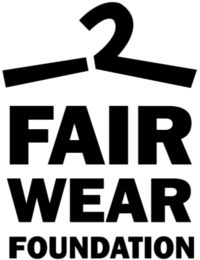
Fair Wear Foundation bases its certification on a code of ethical and respectful labor practices. The quality standard is set by eight labour standards derived from the United Nations Declaration on Human Rights and the ILO conventions. They meet international standards, with the following pillars for obtaining certification
Choice of free employment
There is no discrimination in employment
No child exploitation
Freedom of association and collective bargaining
Payment of a living wage
Reasonable hours of work
Safe working conditions
Legally binding employment relationship
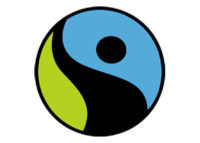
FAIR TRADE
Fair Trade, is a certification that seeks to facilitate change in the textile supply chains and business practices of the sector.
It involves manufacturers and workers in the supply chain, with the aim of achieving better working conditions.
On the other hand, it is committed to maintaining fair trade with its brands.
Included in the standard are specifically prohibited materials, as well as toxic, carcinogenic, harmful to human health and the environment.
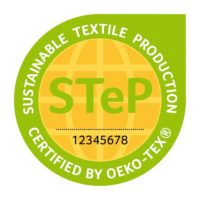
It establishes requirements for the environmental management of the entire production process. The standard is based on a system of audits and certifications for the control of textile installations that respect the environment, society and ethics in production processes.
Companies wishing to receive the STeP by OEKO-TEX certification must meet the concrete criteria in each of the sectors identified in the textile production chain (Evaluation, Chemical Use or Environmental Performance among many others)
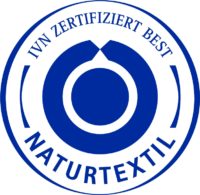
Today known as the GOTS.
standard. It is a certification standard implemented by the International Association of the Natural Textile Industry.
The objective is the implementation in the textile industry of an environmental responsibility and the incorporation and fulfillment of social responsibility.
Today, BEST certification is the highest possible standard for the organic textile production chain on the market. It is valid all over the world.

The OEKO-TEX standard is a label that certifies and guarantees quality on different aspects of textile ecology.
The OEKO-TEX® Association has developed three certification schemes for textiles and textile production centres:
OEKO-TEX® Standard 100 (chemically safe fabrics)
OEKO-TEX® STeP (Sustainable Textile Production)
OEKO-TEX® Standard 100plus (the OEKO-TEX® Standard 100 and STEP combination)
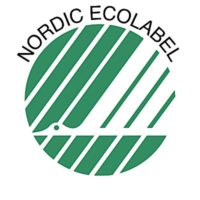
The Nordic Ecolabel (Nordic Swan)
is a system that evaluates the impact of the product on the environment, considering its entire life cycle, energy, water, types of chemical products used and the recycling and reuse of the waste generated.
It is voluntary in nature.
It is a practical tool for consumers to encourage active choice of organic products and ethical trade. It is the official eco-label of the Nordic countries (Norway, Sweden, Denmark, Finland and Iceland).
Nordic Swan is responsible for developing criteria taking into account the following aspects: Energy consumption, Water consumption, Water emissions, Chemicals (accepted/restricted), Chemicals (chemical management), Chemicals (consumer safety), Air emissions, Health and safety at work, Management system (record keeping), Management system (responsibilities/roles), Management system (training), Environmental policy, Social responsibility, Recycling systems, Animal welfare.

It is an international standard for the development of an effective environmental management system (EMS). It was first published by the International Organization for Standardization (ISO) in Geneva in September 1996.
It is a management tool, designed to enable an organization of any size or type:
Identify and control the significant environmental aspects of its activities, products or services;
Identify and comply with legal and other applicable requirements
Continuously improve its environmental performance;
Apply a systematic approach to setting environmental objectives and targets;
Achieve these objectives and targets and demonstrate that they have been met.
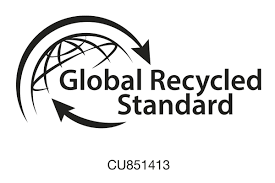
The Global Recycled Standard is a certification that certifies that production processes throughout the supply chain have been subjected to appropriate measures to ensure the integrity of the final product. Its aim is to ensure the recycled content in a product.
The Global Recycled Standard is based on tracking and tracing as monitoring and control throughout the value chain of finally certified products.

The European union certification, encourage companies to market products and services that are more environmentally friendly. It is based on the assessment of the impact of the product or service on the environment throughout its life cycle. Including raw material extraction, production, distribution and final disposal.
It is a voluntary certification, the goal being to address the main environmental impacts on the textile industry and to promote the reduction of water pollution related to key processes along the textile chain, reducing the use of dyes and toxic agents and promoting adequate wastewater treatment.
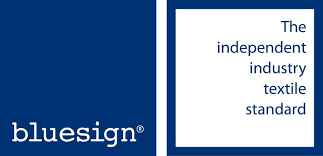
Based on five principles (resource productivity, consumer safety, air emissions, water emissions and occupational health and safety).
The Blue sign standard has a holistic approach that takes into account the five previous pillars, entering into the certification of products and product ranges. It does not certify companies.
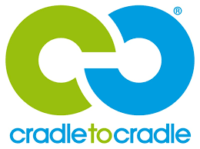
Cradle to Cradle, is a multi-attribute quality standard. On the other hand, it evaluates the safety of a product in relation to human and environmental health. It evaluates the design of a product as well as the practices employed in the manufacture of a product.
It also includes an assessment for the reuse of materials through recycling or composting.
The materials and manufacturing practices of each product are evaluated in five categories: Material Health, Material Reuse, Renewable Energy and Carbon Management, Water Management and Social Equity. The main objective is to eliminate the concept of waste and encourage the development of products for closed-loop systems. That is to say that they contemplate the life cycle from manufacture to subsequent disposal.
And finally, we leave you an initiative of a Valencian entrepreneur referent in the slow fashion movement Angels Biosca. If you want to consume sustainable and local fashion, this is the place to find it!

